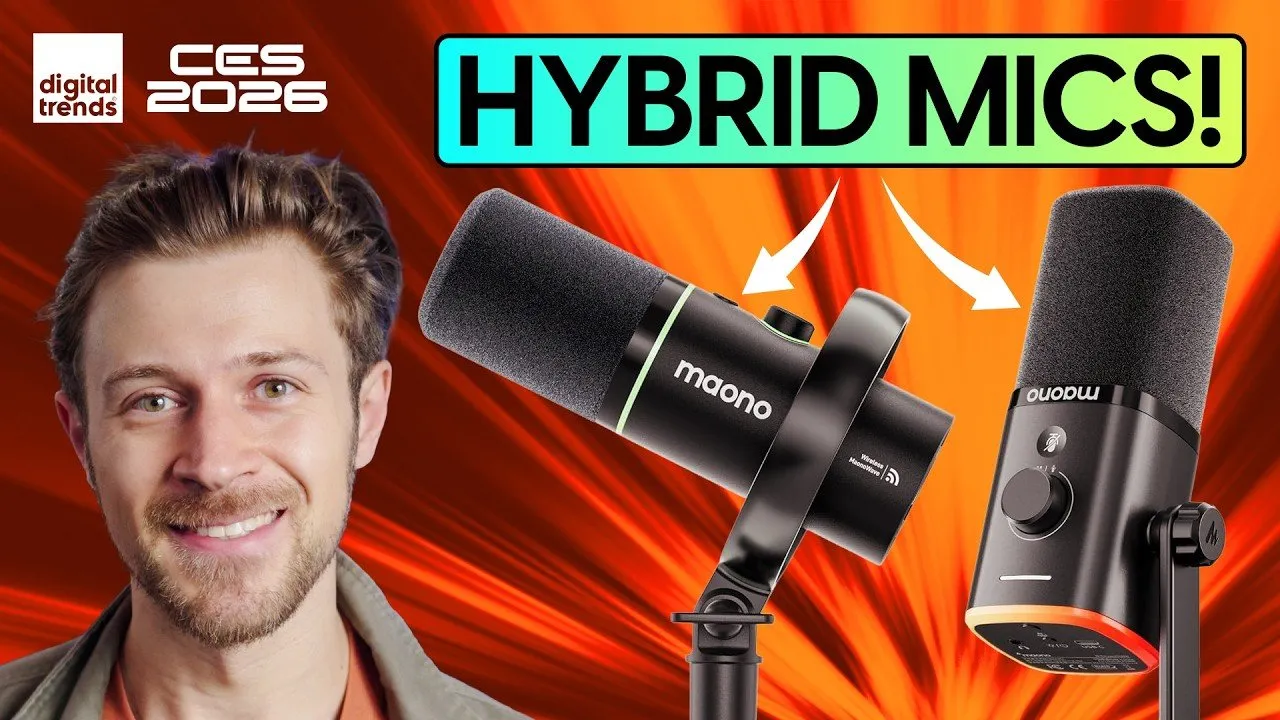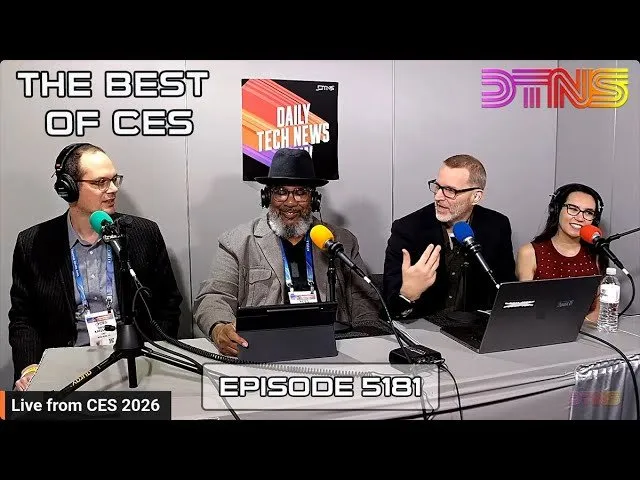Table of Contents
Media mogul reveals how escaping tyranny shaped his billion-dollar business philosophy and family legacy approach.
Key Takeaways
- Patrick Bet-David escaped Iran six weeks after Khomeini's death, spending time in German refugee camps before reaching America and experiencing true freedom.
- He built an insurance company from 66 agents to 50,000 before selling it for a multi-nine-figure exit that changed his life trajectory.
- Taking political risks on his podcast initially caused massive subscriber losses but ultimately attracted millions of loyal followers who resonated with his authentic message.
- The most important business skill is one-on-one leadership where you can sit with someone and genuinely improve their performance through personalized guidance.
- Entrepreneurs who achieve major exits often struggle with purpose afterward, requiring new goals and challenges to avoid destructive behaviors like addiction or affairs.
- Working with your spouse in business requires clear parameters, private disagreement protocols, and maintaining date nights to preserve the romantic relationship alongside professional partnership.
- Children should not receive smartphones until much later in life, with reading 10 pages daily serving as the primary currency in the household instead.
- Ultimate success means your children still want to be around you at 75, you make everywhere you go better, and you honor your family heritage.
The Refugee Mindset That Built an Empire
- Patrick Bet-David's entrepreneurial drive stems from living under Iranian dictatorship for 10.5 years, where freedom was a foreign concept until that pivotal flight out of the country. The moment the pilot announced passengers could order alcohol marked his first taste of true liberty.
- His family's escape came just six weeks after Ayatollah Khomeini's death in June 1989, when they fled to Germany and lived in refugee camps before eventually reaching America. This experience of oppression followed by freedom created an unshakeable appreciation for opportunity.
- The contrast between Iranian poverty and American abundance was stark—pineapple and bananas were "rich man's fruit" in Iran, but readily available in Germany and America. This scarcity mindset transformed into relentless work ethic when opportunity finally presented itself.
- Military service in the Army Airborne division provided crucial discipline and structure that Patrick credits as essential character development. Drill Sergeants Green and Purple "put him in his place" and taught him respect for authority and process.
- His initial dream of winning Mr. Olympia ended when he realized his 6'4" height disadvantaged him against typically 5'8"-5'9" competitors who could carry 350-400 pounds during off-season without health risks. This pragmatic decision-making would later serve his business ventures.
- The transition from bodybuilding dreams to financial services began at Morgan Stanley Dean Witter the day before 9/11, eventually leading to founding his own insurance company that grew from 66 agents to 50,000 before his multi-nine-figure exit.
Building Media Influence Through Authentic Risk-Taking
- Patrick's media journey began as a part-time content creation experiment while running his insurance company, initially focusing on business education and entrepreneurship training. The decision to add political commentary four years ago was considered career suicide by industry experts.
- When he posted a picture with Bobby Kennedy at the MAHA ball, 47,000 Instagram followers immediately unfollowed him within hours, creating a steep cliff in his follower count. However, this initial loss was followed by 153,000 new followers who resonated with his willingness to take authentic stands.
- The political risk-taking strategy ultimately proved successful because people respect authenticity over safety. Audience members now approach him primarily about political content rather than business advice, showing how genuine conviction attracts loyal communities.
- He cites Brazilian congressman Nicolas Fera as an example of message power—a 28-year-old who posted a Portuguese video that received 8.8 million likes, 880,000 comments, and 327 million views, becoming Instagram's most-viewed video of 2025.
- Ron Paul's advice became foundational to Patrick's approach: "As long as you talk about what you believe in and you do it enough times, the right people will find you and learn how to use you." This principle guided his transition from safe business content to controversial political commentary.
- The Valuetainment platform now reaches over 10 million subscribers across various channels, proving that authentic messaging combined with consistent delivery creates massive audience growth even when taking significant risks.
The Art of Scaling Business Through Strategic Partnerships
- Patrick's Manect app emerged from frustration with lawyer billing practices—a seven-minute call billed as 30 minutes led him to create a platform where experts charge by the minute for consultations. This respect-your-time model accelerated connection speed between seekers and knowledge providers.
- The consulting business began accidentally when a viewer named Mario requested Patrick's services, leading to a $15,000 engagement that generated an estimated $10 million in value for the client. This success demonstrated the power of needs analysis and strategic questioning.
- His approach to needs analysis involves deep personal questioning: marriage length, family dynamics, high school experiences, parental relationships, and business history. This comprehensive understanding allows him to provide targeted advice that creates exponential value.
- The holding company structure allows multiple revenue streams to feed each other—podcasting drives consulting leads, consulting success stories fuel content creation, and the platform builds community engagement that supports product launches and partnerships.
- Patrick's minority ownership in the New York Yankees represents the type of strategic investment that emerges from successful exits. These purchases provide access, networking opportunities, and legacy-building experiences rather than just financial returns.
- The 40-year vision includes building something his four children might want to join, creating a family business legacy where everyone works together toward common goals rather than pursuing separate paths.
Mastering Family Business Dynamics Without Destroying Relationships
- Working with your spouse requires explicit choice rather than desperation—the partnership must be mutually desired rather than one person needing help from the other. Force-based business relationships inevitably create resentment and power struggles that contaminate personal connections.
- Clear parameters must be established for workplace versus home interactions, including agreements to never disagree publicly or undermine each other in front of employees. Private disagreement protocols protect both professional credibility and personal relationship dynamics.
- The vision-driven approach keeps couples focused on shared long-term goals rather than getting lost in daily operational frustrations. When arguments arise, returning to the "why" behind the business helps maintain perspective and unity.
- Phone-free dinner policies create sacred space for genuine connection—even business team dinners require all devices to be set aside so real conversation can occur. These systems prevent technology from eroding the human connections that make family businesses worthwhile.
- Patrick prefers working alongside his wife daily rather than the traditional model where she handles home duties while he focuses on business. This shared mission approach strengthens their bond rather than creating separate life spheres.
- The Trump marriage example illustrates how business partnerships can destroy the gentle, tender qualities that originally attracted couples to each other. Avoiding this transformation requires conscious effort to preserve romantic elements alongside professional collaboration.
Revolutionary Parenting in the Digital Age
- None of Patrick's four children (ages 13, 11, 8, and 3) own smartphones, despite most of their peers having devices by age 8-11. This intentional decision follows research from "The Anxious Generation" about technology's impact on childhood mental health.
- The household currency is reading—every child must read 10 pages daily starting at age 6, beginning with basic books and progressing to more complex material. This system creates a culture where intellectual development takes priority over entertainment consumption.
- Jonathan Haidt's "The Anxious Generation" provides the scientific framework for Patrick's parenting decisions, demonstrating how smartphone proliferation and overprotective parenting have rewired childhood and created mental illness epidemics among young people.
- Practical restrictions include dropping children 10 minutes away from school so they walk the final distance, and implementing 8 PM phone safe lockup for older family members. These systems force real-world navigation and reduce evening screen dependency.
- The family eliminated cereal and processed foods two years ago, with a chef evaluating their pantry and removing inflammatory ingredients. This health-first approach prioritizes long-term wellbeing over convenience or children's initial preferences.
- Each child develops individual interests—the 13-year-old loves politics and Muay Thai, the 11-year-old focuses on sports, the 8-year-old enjoys baking, and the 3-year-old can explore freely. This diversification prevents forcing all children into identical molds while maintaining consistent core values.
Sales Leadership Mastery Through Personal Connection
- The most critical sales leadership skill is one-on-one coaching ability—sitting with someone knee-to-knee, eye-to-eye, and genuinely improving their performance through personalized guidance. This skill matters more than stage presence or group management capabilities.
- Great one-on-one leaders understand individual motivational drivers: some people respond to competition and record-breaking challenges, others need detailed checklists and step-by-step processes, some are driven by lifestyle rewards, and others connect with purpose-driven missions.
- The skill hierarchy progresses from one-on-one (most important) to one-to-few (small group leadership) to one-to-many (large audience presentations). Most people incorrectly assume stage speaking is most valuable, but individual development creates the foundation for all other leadership levels.
- Effective leaders know how to "poke" different personality types appropriately—understanding what triggers positive behavioral changes in each individual rather than applying universal approaches that may backfire with certain temperaments.
- The best public speakers talk to massive audiences as if addressing one person, creating intimate connection even in crowds of thousands. This approach makes each audience member feel personally engaged rather than part of an anonymous mass.
- When coaching his son for stage presentations, Patrick emphasizes focusing on one person in the audience and speaking conversationally rather than trying to address the entire crowd simultaneously. This technique reduces anxiety while increasing connection effectiveness.
Navigating Post-Exit Purpose and Avoiding Destructive Patterns
- A $100 million exit story illustrates common post-success destruction patterns—the entrepreneur became addicted to cocaine and engaged in multiple extramarital affairs after achieving his lifelong wealth goal. Without new challenges, successful people often create destructive excitement to fill the void.
- Patrick's system involves always identifying "the next three goals" to maintain forward momentum after achieving major milestones. Stagnation following success leads to relationship destruction as high-achievers turn their competitive energy against family members.
- Professional athletes and bodybuilding champions frequently experience divorce after retirement because the warrior mentality needs external challenges to remain healthy. Without opponents to fight, they unconsciously create conflict with the people closest to them.
- Men are designed to be "on the front lines battling, building something, fighting for something"—attempting to become stay-at-home fathers or retiring early goes against fundamental masculine psychology and typically leads to family breakdown.
- The key is continuing to bring value to communities, societies, or companies regardless of financial success. Stopping productive activity after achieving wealth often results in destructive behaviors that damage the relationships and legacy the money was meant to protect.
- Patrick's 40-year vision keeps him motivated beyond financial success—building something his children might want to join and creating lasting positive impact prevents the purposelessness that destroys many successful entrepreneurs.
Personal Optimization for Long-Term Success
- Patrick's biohacking approach focuses on sustainable basics rather than complex protocols—training three times per week since age 14, avoiding cigarettes and drugs, limiting alcohol to one glass monthly, and eliminating coffee since age 25.
- The family hired a chef to audit their pantry and eliminate processed foods, cereal, and inflammatory ingredients two years ago. This systematic approach to nutrition optimization supports long-term health without requiring constant decision-making about food choices.
- His "four keys to success" framework emphasizes that outlasting competitors matters more than outworking, out-improving, or out-strategizing them. Most people give up before achieving their goals, making persistence the ultimate competitive advantage.
- Sleep patterns vary from 4-6 hours during intense work periods to full tank refills once weekly. Rather than obsessing over perfect sleep hygiene, he adapts rest to business demands while ensuring weekly recovery.
- Vitamin supplementation remains basic—probiotics, omega oils, and fundamental nutrients rather than complex stacks. His admitted inconsistency with supplement routines led to simplifying rather than adding more protocols.
- The key principle involves maintaining non-negotiable boundaries (no cigarettes, drugs, late-night eating) while allowing flexibility in areas like exercise frequency and supplement timing. This approach prevents perfectionism paralysis while protecting core health foundations.
Patrick Bet-David's journey from Iranian refugee to media mogul demonstrates how authentic messaging combined with calculated risks creates lasting business success. His emphasis on family legacy and personal relationships over pure financial achievement provides a blueprint for entrepreneurs seeking both wealth and fulfillment.





